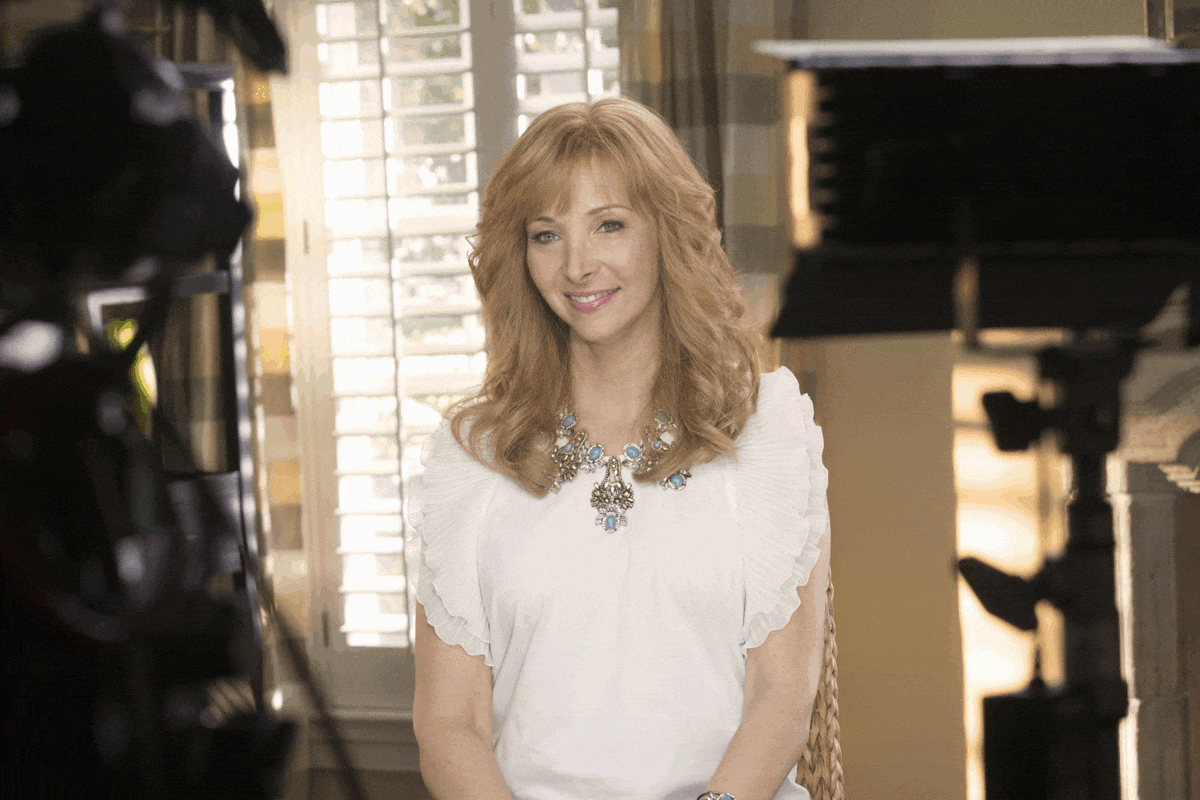Review: Provocative ‘The Casual Vacancy’ no ordinary jaunt to countryside
- Share via
Those who live by the scone must be prepared to die by it as well.
There’s nothing many Americans (myself included) like more than a good wallow in the sylvan coziness of the British countryside. Murder mysteries, period dramas, fantasy epics, modern adult romance — all benefit from gentle hills dotted with ancient churches, rivers winding past storybook villages and conversations prefaced by “I’ll put the kettle on.”
Honestly, it’s past time someone gave us television tourists a serious reality check. The BBC’s “Broadchurch” took the tropes to task, but “The Casual Vacancy,” a co-production of HBO and the BBC, tears them apart.
A three-part, three-hour, star-studded miniseries adapted from J.K. Rowling’s first post-”Harry Potter” novel, “The Casual Vacancy” is a heartbreaking, thought-provoking if occasionally simplistic look at the tyrannical power of the picturesque.
An island of spires and cobblestone nestled in a patchwork of hedgerows and luminous fields, Pagford is the sort of town many of us long to visit on holiday. Which is precisely why certain members of the parish council are so hot to turn a local historic complex into a luxury hotel and spa. Unfortunately for them, Sweetlove House has served for years as a community center that provides a variety of services, including drug rehabilitation to the nearby council estate, known as the Fields.
This means the poor, the troubled, the addicted, afflicted and the otherwise disenfranchised make their way through Pagford’s charming streets on a daily basis. And, my dear, it’s simply not to be borne.
At least that’s the attitude taken by local merchant Howard Mollison (Michael Gambon), his wife, Shirley (Julia McKenzie), and those they have rallied to their pro-spa cause. Opposing the Mollisons are an equal number of council members led by Barry Fairbrother (Rory Kinnear), a social worker who argues that it’s people, not scenery, that make a community.
When Barry dies unexpectedly, his seat — the casual vacancy of the title — and its deciding vote is up for grabs. Howard and Shirley nominate their malleable son Miles (Rufus Jones), while members of the more liberal faction force the already anxiety-riddled high school principal Colin Wall (Simon McBurney) to run against him.
But this is not a tale of politics, or at least not of a political race, so much as it is an examination of how a conflict over economic development can swiftly and irrevocably affect people’s lives, including those of a local doctor (Lolita Chakrabarti), Miles’ wife, Samantha (Keeley Hawes), Barry’s young nephew Arf (Joe Hurst) and Krystal Weedon (Abigail Lawrie), a citizen of the Fields.
In adapting the novel, screenwriter Sarah Phelps chose to focus on the youth, often to the detriment of the elders. The senior Mollisons are so one-dimensionally contemptible that even the theatrically superhuman Gambon and McKenzie can do little more than slather on the villainy.
Fortunately, the complexity of the story lines about the youth more than compensates. Arf is a gentle soul trying to cope with a new crush, an abusive father and an increasingly destructive best friend, but it’s Krystal who quickly becomes the center of the tale.
The daughter of a heroin addict, she is desperately trying to raise her young brother and save her mother’s life. With a face masked by makeup, cheap earrings and brazen defiance, newcomer Lawrie is an absolute marvel, a throat-closing combination of indifference and courage. (A brief scene in which her momentarily sober mother and she share soup on the sofa will leave any child of an addict or alcoholic sobbing into the seat cushions — don’t say you weren’t warned.)
Rowling was a single mother living on government assistance when she introduced the world to Harry Potter, so it is to her everlasting credit that this is her first post-Harry tale. Despite its celebration of the outcast, the Potter series introduced the pleasures of High Brit Gothic-quaint to a whole new generation. (All hail the Leaky Cauldron.) Indeed, the arguments over Sweetlove House could be made for those buildings and towns made famous by the films.
Although the names are a bit of an overkill — Sweetlove, Fairbrother — “The Casual Vacancy” uses many hallmarks of the modern pastoral only to pry them apart. Pagford is also the name of the fictional town where Dorothy Sayers’ Lord Peter Wimsey and his bride famously spent their honeymoon.
But for all the local overtones, the themes are first-world universal. Every town and city faces similar situations in which gentrification and development occur to the detriment of the poor or troubled.
Indeed, in many ways, “The Casual Vacancy” is a contemporary retelling of that American classic, “It’s a Wonderful Life.” Like Jimmy Stewart’s George Bailey, Barry served as the town’s social conscience; remove him and chaos reigns. Only in this version, the damage is not angel-inspired fantasy, and the bleak reality remains, making it difficult to look at any bit of carefully rendered “charm” quite the same way again.
---------------------
‘The Casual Vacancy’
Where: HBO
When: Parts 1 and 2, 8 and 9 p.m. Wednesday
Rating: TV-14 (may be unsuitable for children under the age of 14)
More to Read
The complete guide to home viewing
Get Screen Gab for everything about the TV shows and streaming movies everyone’s talking about.
You may occasionally receive promotional content from the Los Angeles Times.







